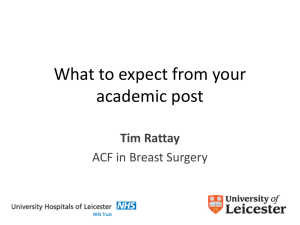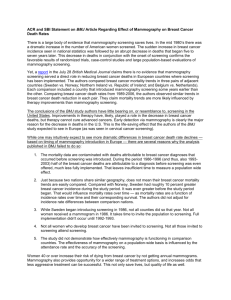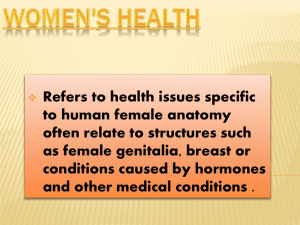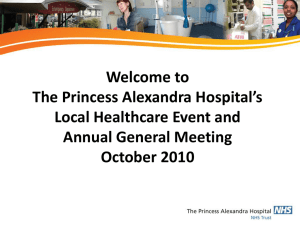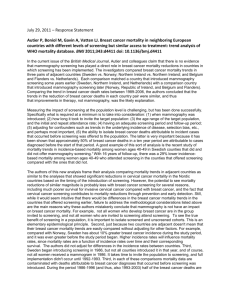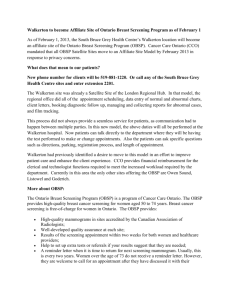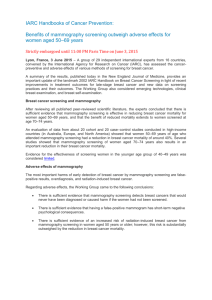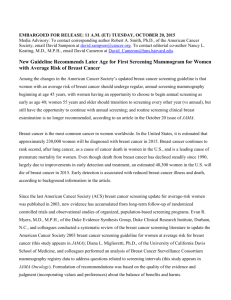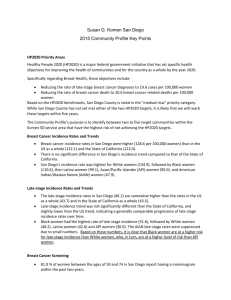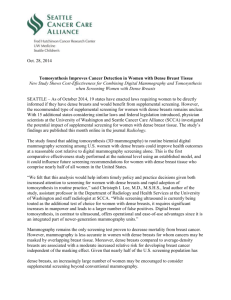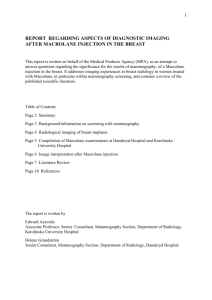Letter to Branches
advertisement
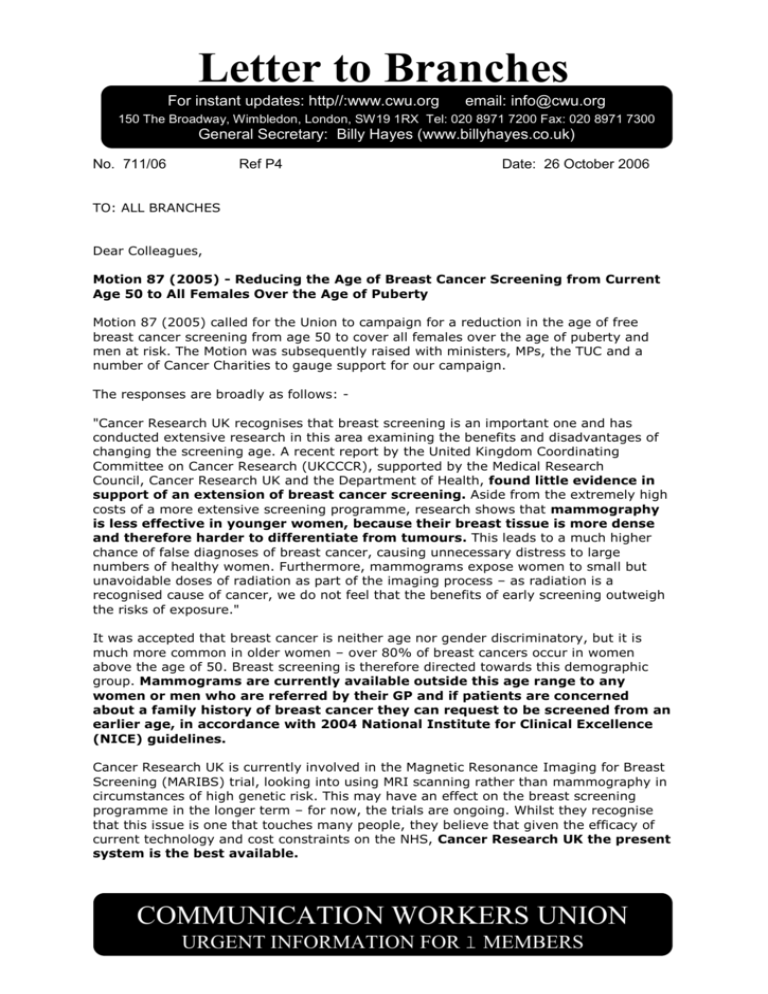
Letter to Branches For instant updates: http//:www.cwu.org email: info@cwu.org 150 The Broadway, Wimbledon, London, SW19 1RX Tel: 020 8971 7200 Fax: 020 8971 7300 General Secretary: Billy Hayes (www.billyhayes.co.uk) No. 711/06 Ref P4 Date: 26 October 2006 TO: ALL BRANCHES Dear Colleagues, Motion 87 (2005) - Reducing the Age of Breast Cancer Screening from Current Age 50 to All Females Over the Age of Puberty Motion 87 (2005) called for the Union to campaign for a reduction in the age of free breast cancer screening from age 50 to cover all females over the age of puberty and men at risk. The Motion was subsequently raised with ministers, MPs, the TUC and a number of Cancer Charities to gauge support for our campaign. The responses are broadly as follows: "Cancer Research UK recognises that breast screening is an important one and has conducted extensive research in this area examining the benefits and disadvantages of changing the screening age. A recent report by the United Kingdom Coordinating Committee on Cancer Research (UKCCCR), supported by the Medical Research Council, Cancer Research UK and the Department of Health, found little evidence in support of an extension of breast cancer screening. Aside from the extremely high costs of a more extensive screening programme, research shows that mammography is less effective in younger women, because their breast tissue is more dense and therefore harder to differentiate from tumours. This leads to a much higher chance of false diagnoses of breast cancer, causing unnecessary distress to large numbers of healthy women. Furthermore, mammograms expose women to small but unavoidable doses of radiation as part of the imaging process – as radiation is a recognised cause of cancer, we do not feel that the benefits of early screening outweigh the risks of exposure." It was accepted that breast cancer is neither age nor gender discriminatory, but it is much more common in older women – over 80% of breast cancers occur in women above the age of 50. Breast screening is therefore directed towards this demographic group. Mammograms are currently available outside this age range to any women or men who are referred by their GP and if patients are concerned about a family history of breast cancer they can request to be screened from an earlier age, in accordance with 2004 National Institute for Clinical Excellence (NICE) guidelines. Cancer Research UK is currently involved in the Magnetic Resonance Imaging for Breast Screening (MARIBS) trial, looking into using MRI scanning rather than mammography in circumstances of high genetic risk. This may have an effect on the breast screening programme in the longer term – for now, the trials are ongoing. Whilst they recognise that this issue is one that touches many people, they believe that given the efficacy of current technology and cost constraints on the NHS, Cancer Research UK the present system is the best available. COMMUNICATION WORKERS UNION URGENT INFORMATION FOR l MEMBERS Rosie Winterton MP Secretary of State for Health Services, made very similar points in her reply to the Union. She made reference to the International Agency on Cancer Research (IARC) of the World Health Organisation who evaluated the evidence in 2002 which concluded that trials provided sufficient evidence for the efficacy of mammography screening of women between 50 and 69 years but for women aged 430 to 49 the IARC concluded there is only limited evidence of a reduction in mortality. Rosie Winterton however, referred to the "Forest Report" on which NHS Breast Cancer screening is based and which recommended further research into the clinical and cost-effectiveness of screening women under 50. The research began in 1990 and called for an age trial. The results are expected later this year. The Minister referred to "The Breast Awareness five-point code" and the joint NHS/Cancer Research UK leaflet "Be Breast Aware".(copy attached) Rosie Winterton confirmed that younger women with a family history should be offered an annual mammography outside the NHS Breast Cancer Screening Programme and added that in June 2006 the guidance was amended adding that Magnetic resonance Imaging (MRI) Scan should be used in addition to or as an alternative to mammography. The Minister concludes that the NHS Breast Cancer Screening Programme is a success with 1,400 lives saves every year. I attach for your information copies of the letters from Jon Spiers Cancer Campaigns Manager at Cancer Research UK and Rosie Winterton MP Secretary of State for Health Services. Yours Sincerely Dave Joyce National Health, Safety & Environment Officer Att COMMUNICATION WORKERS UNION URGENT INFORMATION FOR l MEMBERS COMMUNICATION WORKERS UNION URGENT INFORMATION FOR l MEMBERS
